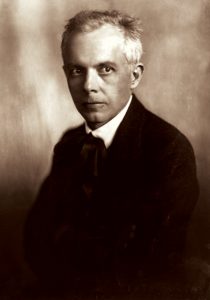Last week’s Dr. Bob Prescribes post featured Alberto Ginastera’s Piano Concerto No. 1 of 1961. In the course of that post, I observed that the fourth movement finale of Ginastera’s concerto:
“is a pedal-to-the-floor, hell-bent-for-leather, furious, drum-dominated, piano-as-percussion-instrument homage to the third and final movement of Béla Bartók’s Piano Concerto No. 2 of 1931 (which is my favorite movement of my favorite 20th century piano concerto; perhaps next week’s Dr. Bob Prescribes?).”
(Don’t you love when someone quotes himself?)

I’ve been thinking about and listening to Bartók’s Piano Concerto No. 2 all week and getting more worked up over it all the time. I believe it to be one of the greatest and most viscerally exciting pieces of music ever written, period, no qualifications. I been listening to recordings featuring the pianists Rudolf Serkin, Vladimir Ashkenazy, Zoltan Koscis, and Yuja Wang (link above). However, the recording that towers (not too strong a word) over the others is the subject of today’s post on Patreon.
Over the years I have made no bones about my abiding love (not too strong a word, either) for Bartók the man and his music. I have even gone so far as to expose myself to the hoots and jeers of more aesthetically circumspect individuals when I’ve said that if pressed, I would have to admit that Bartók is my favorite twentieth-century composer. (I would observe that this is a purely emotional admission, based on the fact that when I listen to Bartók’s music I’m so swept up by its energy, beauty and power that I submit to it entirely; I don’t “think” about what I’m listening to but rather, like some roller-coaster freakazoid lashed to his seat in virtual free-fall, I give in entirely to the rush. It’s the same visceral, emotional, intellectual, spiritual, all-satisfying musical rush I experience when listening to the music of any of the “Five B’s”: Bach, Beethoven, Brahms, Bartók, and the Beatles, as well as the “Three M’s” – Monteverdi, Mozart, and Mahler.)
The key to understanding Bartók’s music is to perceive it as a synthesis, the whole a gazillion times greater than its parts. … continue reading about Bartók, the work, and Dr. Bob’s Prescribed recording, only on Patreon!
